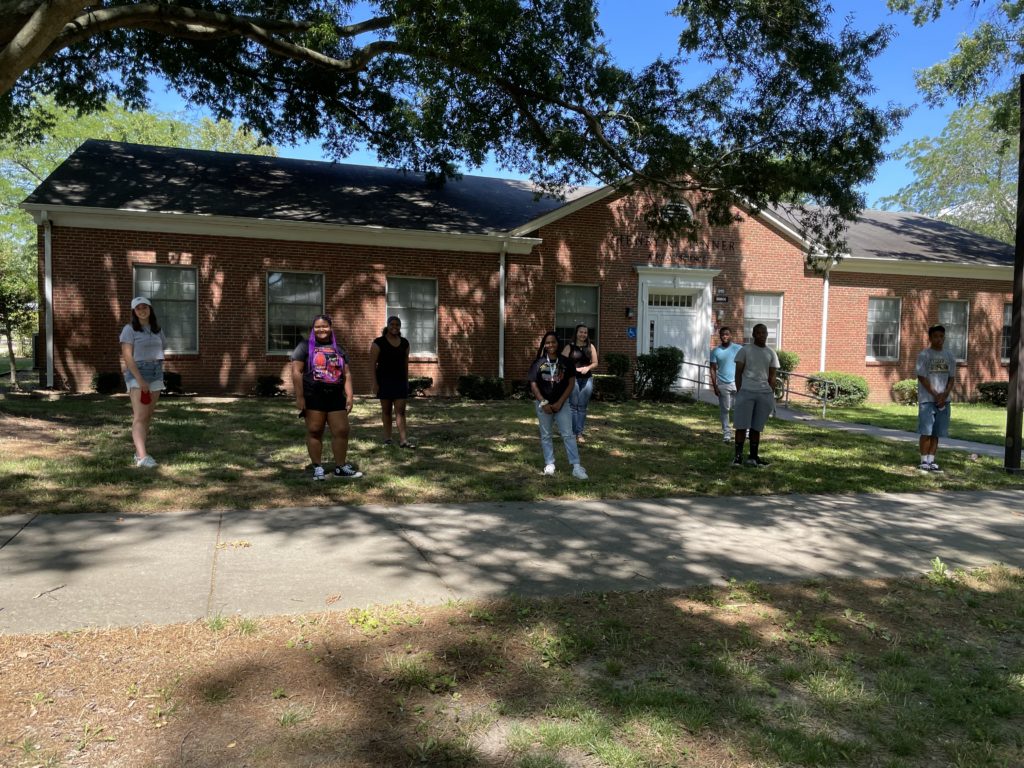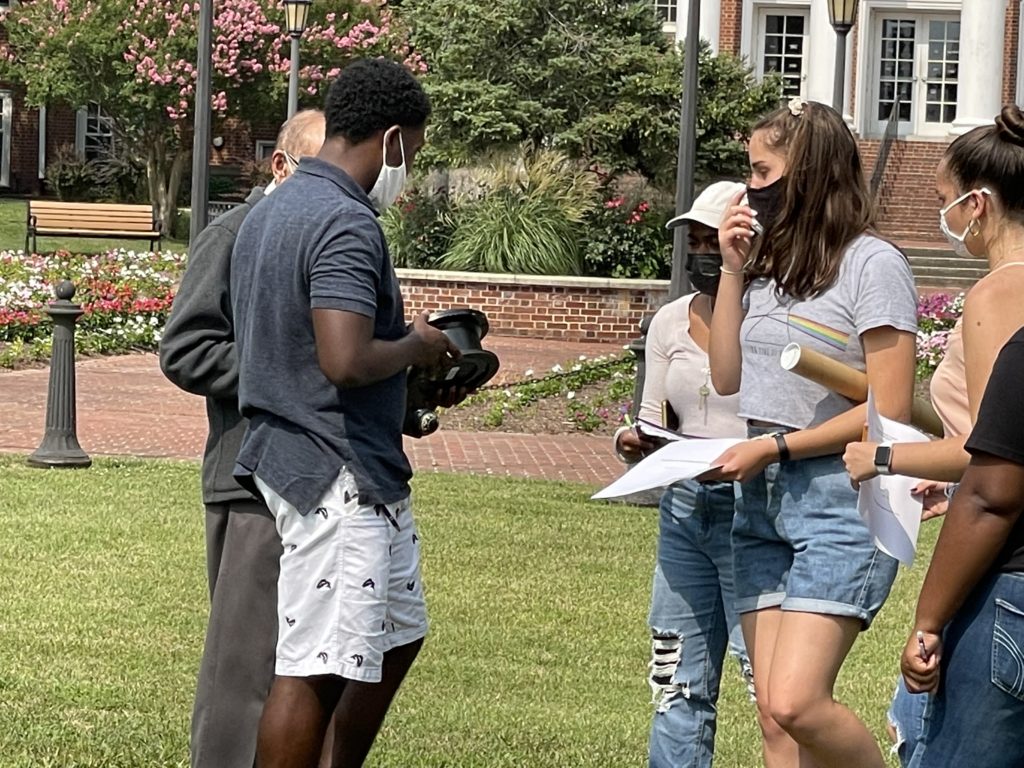
This summer, the Geosciences Bridge Program returned to the campus of the University of Maryland Eastern Shore. After being held virtually for the first time in 2020 due to the COVID-19 pandemic, the NOAA LMRCSC leveraged program successfully took place in person.
Funded by the National Science Foundation and the NOAA LMRCSC, the Geoscience Bridge Program introduces recent high school graduates to ocean science, atmospheric science and geographic information system and remote sensing techniques. For six weeks, students were immersed in activities and educational modules built to strengthen interns’ knowledge of mathematics and science and increase their academic performance. Upon successful completion of the program, participants earned college credits towards their collegiate degree.
This summer, eight students gained the opportunity to participate in the highly competitive internship. Youth participants took part in activities that not only enhanced their knowledge of earth science, but students also learned how to work in a collaborative setting. Interns collected water, zooplankton and benthic invertebrate samples in the Chesapeake and Maryland Coastal Bays. Measuring water quality parameters and learning new sampling techniques were also a part of the learning curriculum.

Participating in hands-on activities was a major part of the interns’ experience, but in addition, students also participated in remote sensing and geographic information systems technology. These weekly computer modules allowed students to collect and analyze data to map and examine changes occurring in the earth. In addition, the budding scientists utilized data systems that allowed them to create new story maps with the input of data. Interns also learned how to take weather observations in the Atmospheric Science weekly module and presented their findings in mock weather reports.
The interns not only worked on learning modules and earth science activities, but community activities were also a part of the summer program. The future college co-eds participated in the Coastal Clean-Up event at Assateague Island, Md., where they removed trash and debris from a local state park and submitted their data to a larger international Coastal Clean-Up program for documentation.
At the conclusion of the program, students presented the research findings they collected during their studies. Their presentation titled, “Water Quality and Fish Communities in the Maryland Coastal Bays,” focused on a comparison of water quality parameters, fish species richness and diversity between 1992 and 2018.

